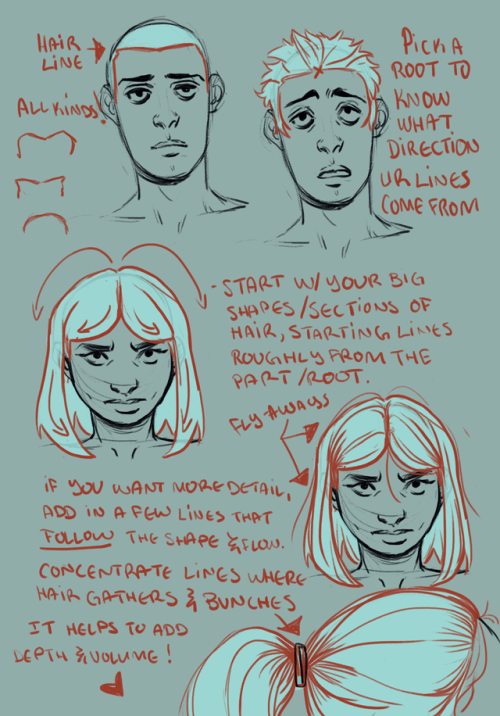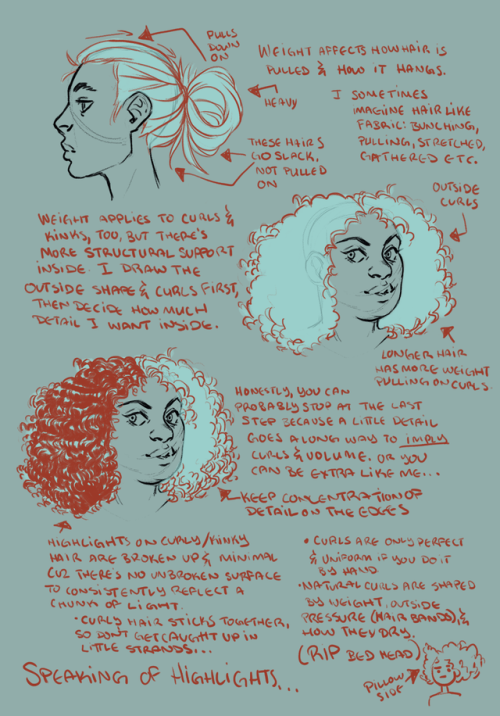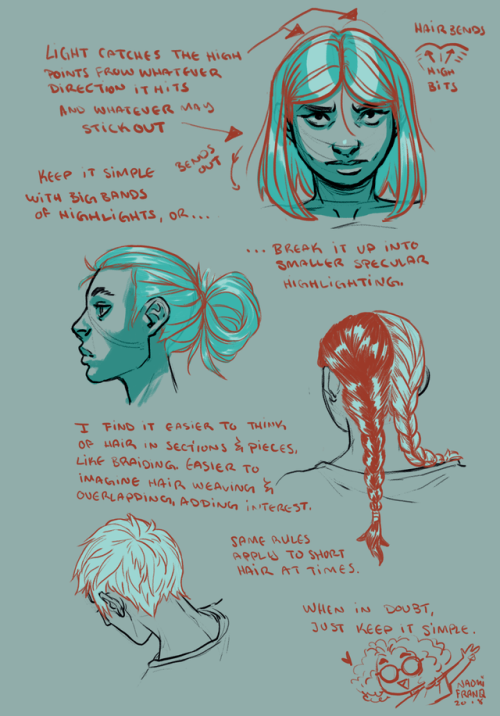ೃ⁀➷ Writing Resources
ೃ⁀➷ writing resources
An ongoing list of writing resources I tend to come back to while writing. (None of these are mine)
Last updated: 09/07/21
Tips On Introducing Backstory
Fantasy Guide to Writing Architecture
Muggle Technology Through the Ages:
How To Foreshadow
How To Write A Realistic Argument
How To Write An Apocalypse
How To Make Your Story Scary
How To Make Your Writing Longer
Humour in Dialogue/Narrative
How To Write Close Platonic Relationships
How To Write A Kiss
Writing Intimidating Characters
How To Write Teasing In A Romantic Relationship
Resources For Writing Sketchy Topics
Resources For Writing Injuries
Symptoms of dying that aren’t coughing up blood
Tips On Writing Time Skips
Tips On Writing Flashbacks
How To Write Falling In-Love
Cheat Sheet For Writing Emotion
Writing Pain
Writers Guide: Hand to Hand Combat
Body Language Cheat Sheet For Writers
Fainting and losing your consciousness for writers
How To Write A Fight Scene
Writers Guide: Guns
Words For Skin Tone | How To Describe Skin Colour
How to write passages like film effects
Words to use instead of “said” organized by emotion/intention 2.0
More Posts from Lune-versatile and Others
being a self-taught artist with no formal training is having done art seriously since you were a young teenager and only finding out that you’re supposed to do warm up sketches every time you’re about to work on serious art when you’re fuckin twenty-five




dreamy, cluttered apartment 🌿📚☕
write EVERY DAY. here's how.
where inspiration fails, habit will always have your back. this is why it's important to build writing into your life as a habit, if you ever want to finish a project or improve your skills.
back in 2018, i (nat) was a college student without much going for me. i was feeling creatively stifled and insecure and like i didn't have TIME to write good. and i was right. i didn't have time to write GOOD. but i did have time to write SOMETHING. so that january, i built the habit. i wrote every single day in 2018, and almost every single day since.
because once you establish the habit, it becomes safer to skip a day (or three days) here and there. you will at least THINK about writing every day, even if you go straight from work to social plans to bed, or you're on vacation, or you're too sick to write. and that thinking is part of the habit!
here are the tips i followed to make this happen.
-pick a reasonable goal. starting off, mine was 300 words. now, i don't follow a goal, because the habit is so solid i don't need to. but 300 words is easy and quick. and if you give a pig a pancake, they'll probably have days where they write 500, 1000, even 3k words.
-log your word count. this is interesting to look back on every new year's eve, and it provides accountability. do this however you like; a spreadsheet, a physical notebook, a note in your phone, each day's section in your planner, whatever works for you. i have a channel in my personal discord server where i log mine.
-do NOT edit as you go. just write write write. if you feel like something you wrote needs work, yeah, it probably does-- everything needs to be edited, but that's a problem for later. highlight sentences you can't get right or make note of them to edit LATER. but do not edit as you go!
-write self-indulgent crap. fanfiction, shitty poetry, manifestos, rants, self insert fantasy romance, whatever floats your boat. having a shitty self-indulgent backup story to work on when i didn't feel like writing for the projects i cared about really helped get me in the habit. write for an audience of one!
-journal if you can't write. this may not necessarily build your skill as much as writing regular prose would, but it does help you maintain the habit and it can be useful in lots of other ways.
-think outside the box. write trivia questions. write a list of your favorite childhood toys. write a review of the book you're reading. i'm writing this post, that's going toward my word count for the day. again, this is still writing, and it helps maintain the habit.
-get comfortable writing on your phone. this took me a long time, but making it over this hurdle has saved my habit so many times.
you'll be surprised at the cool shit you end up writing on those days when you swore you weren't inspired enough. and you'll be delighted with how much progress you will make honing your craft!
happy writing! if you have any questions about how to implement any of these tips, our ask box is always open.
Hacks For Writing
Writing (at least for me) is all about momentum. If you stop, you crash and burn. So, here are some hacks I use to keep myself writing.
-Instead of stopping to google information, like “How long does it take for trees to grow,” or “how many different species of birds of paradise are there, simply put "TK" in the spot where the units or information would be and move on. After you are done writing, you can go back and google for the needed information.
-In scenes where you simply cannot think of what to put, simply write something in brackets like, “[The characters reminisce with each other around the fire. This leads into the next topic.]” or something similar. Oftentimes, later writing will give you inspiration for what to put in those spots.
-If you can’t remember the word, or need a synonym, DON’T stop to google. Simply put the word (or “placeholder”) in brackets and come back later. If you are still having trouble finding out or remembering the word when going back through, I would recommend Onelook Reverse Dictionary as a very good source for finding words and synonyms.
-When plotting something out, don’t feel the need to put everything that happens. If you want to, cool! For me, I find I quickly lose disinterest in actually writing when I have every little thing already planned out. It has become boring to me. To combat this, I simply write the main ideas of what I want to happen and things I want to mention (symbolism/foreshadowing) and move on, giving myself room to continue to explore and discover as you write.
-To avoid burnout, If I’m working on a bigger project, I’ll usually also have something that I’m writing on the side that I can switch back and forth so I don’t lose interest.
-Don’t be afraid to use generators! Character names, places, powers, etc. can all be created using a generator. You don’t have to worry about every little thing. Also, if you can’t think of a name or something else at the moment that you could use a generator for, just mark it in brackets (ex: [Name]) and move on.
Lastly, remember that everything you write is for yourself. Having others validate you is always great, but they are the ones who have the privilege of reading your works. You don't owe them anything.
Here's some writing resources on worldbuilding, pacing, and story structure, since I see many people struggle with them.
Worldbuilding
Worldbuilding In Fantasy - The Best Advice, Tips And Guide
10 Worldbuilding Tips: How to Write an Engaging Fictional World
Worldbuilding Guide & Template: Your #1 Resource
Pacing
7 Quick Tips for Mastering Pacing in Your Story
Story Pacing: The What, Why, and How for a Fiction Writer
Story Structure
Story Structure: 7 Narrative Structures All Writers Should Know
The Hero's Journey: A 17 Step Story Structure Beat Sheet
Save the Cat Plot Structure
The Three-Act Structure
have fun <3
Character Charts
One thing that always gets me excited to start a new writing project is creating a character. Creating a new character is a sure-fire way to amp your self up about your new story.
There is no write or wrong way to create them, you just do!
However, creating a new name and face for a story can be daunting, particularly when it comes to naming the character! I like to choose a name with a special meaning or connection to the story I have in mind.
I find it very helpful to refer to a ‘character development’ chart or ‘character features’ charts.
I'll post some helpful charts down below! I hope this helps :)







I jotted down for a friend of mine some tips and notes on how I approach drawing hair, and things I keep in mind while doing so, and thought I’d share. There are loads of other ways to do it, and the learning never stops, so I hope this helps!
A Few Tips On Writing Chapters
Give each chapter a descriptive title.
Especially if you find yourself at sea when deciding how exactly to chop your story into pieces. Even if you don’t want to use chapter titles in your final draft, they’re of enormous use when you’re still figuring out exactly what the shape of your story is. By giving your chapter a descriptive title, you’re giving your chapter a focus and a particular story for your chapter to tell.
Make sure each chapter has its own self contained narrative arc.
This is not to say that every novel must be episodic, but that each section should have its own beginning, middle, and end. It should have set up, build up, and resolution. It should ask a question an implicit question at the beginning and provide a slightly more explicit answer at the end.
Example: one chapter in my book is just 500 words. Two new characters drive into town, get out of a car, knock on a door, and they say their names. The beginning is the introduction of the mystery of these characters. It’s the question “who are these people?” As they drive, you see them and where they are going, which builds towards the answer. As a resolution, you get their names.
You wouldn’t call this a “short story” by any means, but it does have a firm beginning, middle, end. It is a contained unit.
A chapter break can–and sometimes should–come in the middle of a scene.
Twists and cliffhangers can appear at the end of novels, so it would be silly to say you couldn’t end a chapter that way, too. Cliffhangers and twists are usually both a result of other plot points, and the cause of a new problem. Narratively, they function both as the ending of one thing and the beginning of another, so they make for great chapter breaks. Separating the scene at a cliffhanger is often better/cleaner than lumping the entire scene into one chapter.
Example: Alex is warned to stay away from a dangerous cliff. Alex gets adventurous and wanders toward cliff. Alex falls off of cliff. Beginning. Middle. End.
Alex is actually hanging from cliff! Alex figures out a way to get back to solid ground, struggles. Alex makes it back to solid ground. Beginning. Middle. End.
You want your readers to “just one more chapter!” their way through your book. Stuffing moments of high tension into the middle of chapters that resolve neatly won’t keep them turning pages.
Always end your chapters on a point of intrigue.
Using points of tension to bookend chapters is important because chapter endings are usually where readers put a book down during a reading session. They’re very naturally places to close the cover and walk away.
As a writer, you don’t want this. You absolutely don’t want to give your reader great places to put the book down, because you need them to pick the book up again as soon as possible. Not the next day, or the next week, (or never), but while they have a spare minute during their commute, or during their lunch break, or under their desk in class.
You want to encourage this by taking that perfectly natural endpoint, that place they expect to be able to put the book down, and forcing them to take even a tiny peak at the next chapter.
This doesn’t mean ending every chapter on a verifiable cliffhanger, but there has to be something. A character can solve a mystery. A new character can appear. There can be a moment of irony. A new idea. Just so long as it’s something that will make the reader think “I need to know what happens next.”

Tips for writing an essay with executive dysfunction: do this.
Write out bits and pieces of the essay. When you get to a part you can’t/”don’t want to” write, put it in bold brackets. Get as much done as you can and come back in a half an hour or so!
If the executive function is still bothering you, take it one bracket at a time. Don’t delete the bracket until you’re done “filling it in,” so to speak. If you need to take more breaks or hop to the next bracket, you can do that too! Similarly, if you have a thought you want to get down but you aren’t sure how to word it, put it in bold brackets as well!
It may not “cure” the executive dysfunction or procrastination problems, but it makes writing the essay more like putting shapes in holes of the same shape. It can be a pain, but the process is a bit more streamlined and user-friendly.
I know this may not work for everyone, but as someone who has really bad executive dysfunction and problems focusing (thank you, ADHD!) this works REALLY well for me! I hope by sharing it it can help other people (with and without executive dysfunction/adhd) too! o/









Shokugeki no Sanji Chapter 2
-
 the-making-of-her-eyes liked this · 3 months ago
the-making-of-her-eyes liked this · 3 months ago -
 star-of-the-sea-ta reblogged this · 6 months ago
star-of-the-sea-ta reblogged this · 6 months ago -
 xxsksxxx liked this · 7 months ago
xxsksxxx liked this · 7 months ago -
 babelswritingresources reblogged this · 8 months ago
babelswritingresources reblogged this · 8 months ago -
 omnishambolic liked this · 9 months ago
omnishambolic liked this · 9 months ago -
 incrediblemirai liked this · 9 months ago
incrediblemirai liked this · 9 months ago -
 meghan-maria reblogged this · 9 months ago
meghan-maria reblogged this · 9 months ago -
 pom-prime reblogged this · 11 months ago
pom-prime reblogged this · 11 months ago -
 aiceofspades liked this · 1 year ago
aiceofspades liked this · 1 year ago -
 coffeecupresearchmode reblogged this · 1 year ago
coffeecupresearchmode reblogged this · 1 year ago -
 dusselchen liked this · 1 year ago
dusselchen liked this · 1 year ago -
 someoneknowmewell liked this · 1 year ago
someoneknowmewell liked this · 1 year ago -
 undeadrottingcorpse liked this · 1 year ago
undeadrottingcorpse liked this · 1 year ago -
 27dragonsinatrenchcoat reblogged this · 1 year ago
27dragonsinatrenchcoat reblogged this · 1 year ago -
 27dragonsinatrenchcoat reblogged this · 1 year ago
27dragonsinatrenchcoat reblogged this · 1 year ago -
 27dragonsinatrenchcoat liked this · 1 year ago
27dragonsinatrenchcoat liked this · 1 year ago -
 dreadlilies liked this · 1 year ago
dreadlilies liked this · 1 year ago -
 artisticamore liked this · 1 year ago
artisticamore liked this · 1 year ago -
 baladine liked this · 1 year ago
baladine liked this · 1 year ago -
 margaretcwilliams reblogged this · 1 year ago
margaretcwilliams reblogged this · 1 year ago -
 writing-with-l liked this · 1 year ago
writing-with-l liked this · 1 year ago -
 oracles-of-shrikes reblogged this · 1 year ago
oracles-of-shrikes reblogged this · 1 year ago -
 kayla-m1996 liked this · 1 year ago
kayla-m1996 liked this · 1 year ago -
 decepticookie liked this · 1 year ago
decepticookie liked this · 1 year ago -
 ssa-bellweather liked this · 1 year ago
ssa-bellweather liked this · 1 year ago -
 mesanthropi liked this · 1 year ago
mesanthropi liked this · 1 year ago -
 megamilfluvr liked this · 1 year ago
megamilfluvr liked this · 1 year ago -
 inkspills-and-waxseals liked this · 1 year ago
inkspills-and-waxseals liked this · 1 year ago -
 certified-boyliker liked this · 1 year ago
certified-boyliker liked this · 1 year ago -
 kikuiguess liked this · 1 year ago
kikuiguess liked this · 1 year ago -
 just-a-honey-badger reblogged this · 1 year ago
just-a-honey-badger reblogged this · 1 year ago -
 just-a-honey-badger liked this · 1 year ago
just-a-honey-badger liked this · 1 year ago -
 dreaming-of-the-end reblogged this · 1 year ago
dreaming-of-the-end reblogged this · 1 year ago -
 1smolbean liked this · 1 year ago
1smolbean liked this · 1 year ago -
 if-wishes-came-true reblogged this · 1 year ago
if-wishes-came-true reblogged this · 1 year ago -
 if-wishes-came-true liked this · 1 year ago
if-wishes-came-true liked this · 1 year ago -
 frostseeker-draws reblogged this · 1 year ago
frostseeker-draws reblogged this · 1 year ago -
 shinobi98 liked this · 1 year ago
shinobi98 liked this · 1 year ago -
 katesas liked this · 1 year ago
katesas liked this · 1 year ago -
 an-ungraceful-swan reblogged this · 1 year ago
an-ungraceful-swan reblogged this · 1 year ago -
 mapsareforbraindeads reblogged this · 1 year ago
mapsareforbraindeads reblogged this · 1 year ago -
 sitcom-muppet reblogged this · 1 year ago
sitcom-muppet reblogged this · 1 year ago -
 alpineglows reblogged this · 2 years ago
alpineglows reblogged this · 2 years ago -
 hhoneybeez liked this · 2 years ago
hhoneybeez liked this · 2 years ago -
 sinzy-anon liked this · 2 years ago
sinzy-anon liked this · 2 years ago -
 streite liked this · 2 years ago
streite liked this · 2 years ago
